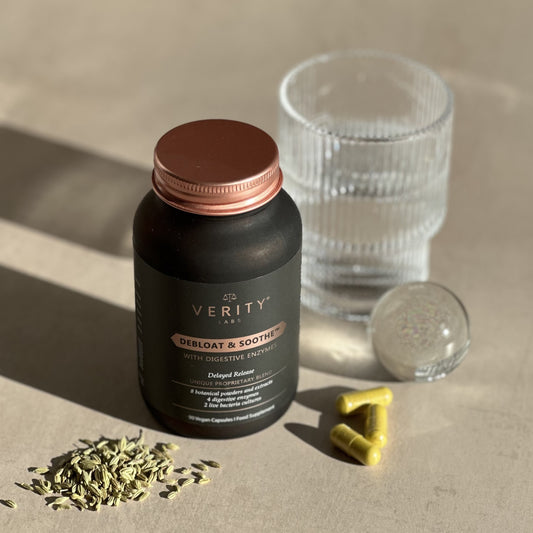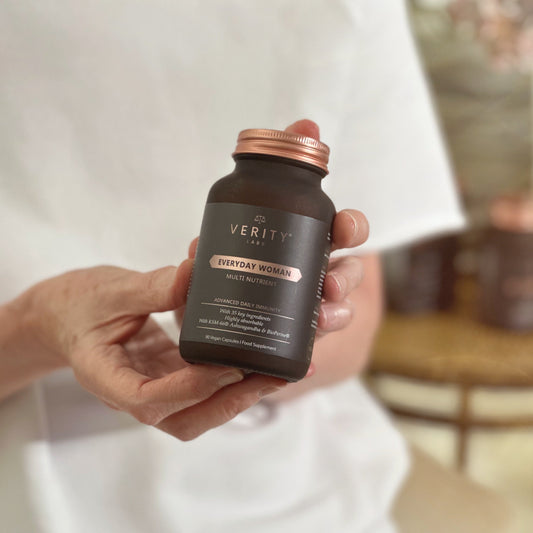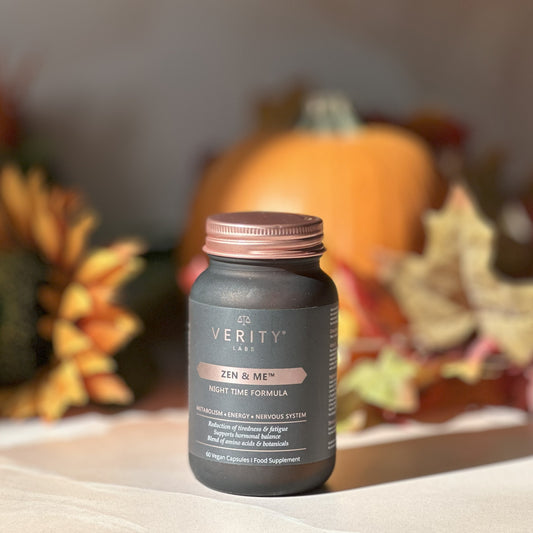Bloating is a common and often uncomfortable symptom experienced by many women during menopause and perimenopause. It can be frustrating, as it’s often mistaken for weight gain, leading to unnecessary stress. However, understanding why bloating occurs during this phase of life and how to manage it can make a significant difference in your comfort and well-being.
Why Does Menopausal Bloating Occur?
Menopausal bloating is primarily triggered by hormonal fluctuations, particularly the imbalance between oestrogen and progesterone levels. When oestrogen levels are higher than progesterone, the body tends to retain more water, leading to that familiar bloated feeling.
In addition to water retention, gas retention is another common culprit behind menopausal bloating. Hormonal changes can slow down digestion, leading to the accumulation of gas in the intestines. Factors such as a diet rich in gas-producing foods, fizzy drinks, and even certain health conditions like irritable bowel syndrome (IBS) can exacerbate this issue. Additionally, imbalances in gut bacteria, which can be influenced by menopause, may also contribute to bloating.
Managing Menopausal Bloating
While it may not be possible to completely eliminate bloating during menopause, there are several strategies you can employ to manage it effectively:
Focus on a Balanced Diet
Eating a diet rich in fruits, vegetables, whole grains, and lean proteins can help reduce bloating. Minimising the intake of processed foods and those that are known to produce gas, such as beans, cabbage, and onions, can make a noticeable difference.
Watch Your Salt Intake
Excessive salt can lead to water retention, which only worsens bloating. Reducing your sodium intake by avoiding processed foods and opting for fresh, whole foods can help manage this issue. Seasoning your meals with herbs and spices instead of salt is a great way to enhance flavour without the added sodium.
Stay Hydrated
Proper hydration is essential for preventing water retention. Drinking plenty of water throughout the day helps maintain fluid balance in the body, reducing bloating. It is also wise to limit sugary drinks and caffeine, as they can contribute to bloating in some individuals.
Practice Mindful Eating
Eating smaller, more frequent meals can prevent the discomfort associated with large meals. Taking the time to chew your food thoroughly and eat slowly can also reduce the amount of air you swallow, which can help minimise bloating.
Incorporate Food Supplements
Supplements and natural herbs offer support for managing bloating during menopause. Herbal remedies such as peppermint and ginger are renowned for their digestive benefits, helping to soothe the stomach and reduce gas. Fennel seeds can ease bloating by relaxing the gastrointestinal muscles, while berberine promotes gut health by killing or inhibiting the growth of intestinal microbes, especially for those struggling with small intestinal bacterial overgrowth (SIBO). Additionally, herbal blends containing thyme and oregano can decrease inflammation, fight fungal overgrowth and combat harmful bacteria in the gut, whilst probiotics help reintroduce beneficial bacteria. Incorporating these natural remedies into your routine may provide significant relief from menopausal bloating.
Verity Labs' Debloat & Soothe product conveniently incorporates probiotics and natural botanical extracts that help reduce bloating and bad bacteria, as well as digestive enzymes that assist with digesting food and reducing gas.

Identify and Avoid Trigger Foods
Certain foods are more likely to cause bloating. Keeping a food diary can help you identify any specific foods that trigger your symptoms. Common offenders include dairy products, beans, lentils, broccoli, and carbonated drinks. Once you identify your triggers, reducing or eliminating them from your diet may alleviate bloating.
Stay Active
Regular physical activity is crucial for maintaining a healthy digestive system and reducing bloating. Activities like walking, swimming, or yoga can help stimulate digestion and prevent bloating. Aim for at least 30 minutes of moderate exercise most days of the week.
Manage Stress
Stress can have a significant impact on your digestive system, often leading to bloating. Incorporating stress-management techniques such as meditation, deep breathing exercises, or even enjoying a relaxing activity like reading or watching TV can help keep bloating at bay.
Seek Professional Advice
If bloating becomes persistent or severe, it’s important to consult a healthcare professional. They can assess your symptoms and rule out any underlying medical conditions. Your doctor may also provide specific treatment options or recommend over-the-counter medications to help manage your symptoms.
Bloating during menopause is a common but manageable symptom. By understanding the underlying causes and making simple lifestyle adjustments, you can reduce the discomfort and improve your quality of life during this transitional period. Remember, if symptoms persist, professional guidance is always available to help you navigate through menopause with confidence and comfort.
References:
https://www.ncbi.nlm.nih.gov/books/NBK507826/
https://jneuroinflammation.biomedcentral.com/articles/10.1186/s12974-020-01998-9
https://www.tandfonline.com/doi/full/10.1080/03630242.2023.2284730#d1e268
https://www.mdpi.com/2072-6643/16/1/27
https://www.apa.org/monitor/2023/09/easing-transition-into-menopause
















